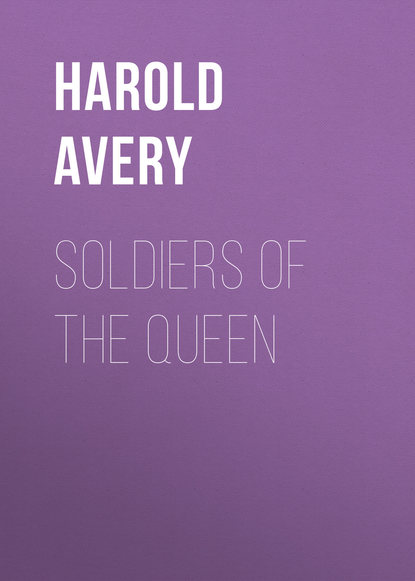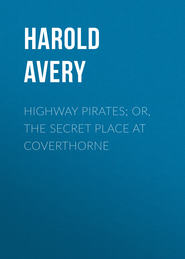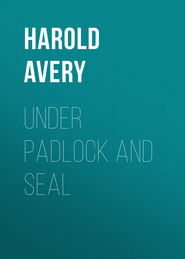По всем вопросам обращайтесь на: info@litportal.ru
(©) 2003-2024.
✖
Soldiers of the Queen
Настройки чтения
Размер шрифта
Высота строк
Поля
"What?" cried Jack, laughing.
"If you'll listen a moment," said Tinkleby glibly, "I'll explain the whole matter in two words.
"The fellows in the Fifth used to run a manuscript magazine. Aston was the first editor, and he called it the 'Portfolio,' because it was bound up in the case of an old blotter that he bagged out of the reading-room. The chaps who contributed papers called themselves the Fifth Form Literary Society, and elected a secretary, treasurer, and president. Aston was so pleased with one of the numbers that he sent it to The Melchester Herald to be reviewed; but after waiting about six months for a notice to appear, he went down to the office, and the editor said that the manuscript was lost, and that Aston ought to have enclosed stamps if he wanted it returned. Godson, one of the prefects, said he saw a bit at Snell's the fish-shop, where they were using it to wrap up screws of shrimps; but that was all rot, and he only said it because the fellows in the Sixth were jealous. Well, then, it was suggested that the magazine should be printed, and the members subscribed towards bringing out the first number; but after they'd raked in all the money they could get, they found there wasn't enough for the purpose, so they decided to spend what they'd got in having a feed at 'Duster's,' and it was agreed it should be an annual affair.
"When I was made president I brought out two numbers of the 'Portfolio,' but in the second I wrote rather a smart thing on old Ward, and called it 'The Career of a Class Master.' It was really so good I thought he'd enjoy reading it, and so I got another fellow to show it him; but he didn't properly appreciate it, and cut up rough. He said he would overlook the personal allusions, but he really couldn't allow any fellow in his form to be so backward in spelling, and therefore I must borrow a spelling-book from one of the kids, and learn two pages a day until I improved. He used to hear me before we began first lessons. It was rather rough on the president of a literary society, making him stand up every morning and reel off two pages of 'Butter's Spelling-Book.' And that squashed the 'Portfolio;' fellows wouldn't send in any more papers, for fear they should be hauled up in the same manner.
"But they went on subscribing for the feed," continued Tinkleby, brightening up. "We didn't let that fall through. It comes off on the breaking-up day, after the old boys' match. The Sixth are always invited in to have supper with the swells; but I know a lot or them would much rather be with us having a blow-out at 'Duster's.' Well, that's the meaning of our literary society; the subscription is only two-pence a week, so you'd better join."
The two cousins promised they would do so. Every Monday morning, in the classroom, Tinkleby passed round an old missionary box, crying, "Now then! pay up, you beggars. No broken glass or brace buttons!" It was always a race to get the collection over by the time Mr. Ward entered the room; but the sprightly Tinkleby, who seemed to have undertaken the combined duties of president, secretary, and treasurer, hurried through it somehow; and each week the box grew heavier, and the hearts of the contributors lighter as they looked forward to the time when they should sit down to the long-expected banquet.
The term passed very pleasantly for Jack and Valentine; and what between cricket, bathing, and the prospect of spending the coming holiday at Brenlands, they had good reason for feeling contented and happy. Only one thing happened to disturb their peace of mind, and that an incident of rather a curious nature.
They were strolling back to the school one afternoon, and had got within twenty yards of the main entrance, when some one hurrying along behind them touched Jack on the shoulder, and looking round they found themselves once more confronted by the same shabby-looking man who had accosted them on a previous occasion.
"Beg pardon, Mr. Fenleigh," he began. "I'm Ned Hanks; you'll remember, sir. Maybe you've got a copper or two you can spare a poor fellow who's out of work."
"I've got no money to give away to beggars," said Jack; "and I tell you once more we don't know you."
"That's rather ungrateful, I calls it," answered the man. "I did you two gents a good turn last year, and got precious little for it. I might have made more out of the other party."
By this time they had reached the school-gates.
"Look here," broke in Valentine, "don't you bother us any more, or we'll put a policeman on your track. I don't understand a word of what you've been saying, and – "
"Stop, stop, Fenleigh!" interrupted a deep voice. "What's the meaning of this, pray?"
The two boys looked up and found they were standing in the presence of the headmaster.
"What's the meaning of this?" he repeated. "Who is this man you're talking to?"
There was a moment's silence, during which the seedy stranger slunk away, and disappeared round the corner.
"I ask who is this man you are speaking to?"
"I don't know, sir," answered Valentine.
"Nonsense!" retorted Mr. Westford sharply. "I saw you two boys holding a conversation with him once before. You must know who he is; answer my question immediately."
"He told us his name was Hanks," said Jack; "but we don't know him. He came up and spoke to us of his own accord."
"And, pray, what did he want to speak to you about?"
"I don't know, sir," answered Valentine – "that is – he wanted to beg some money."
"I don't understand your answer, Fenleigh," replied Mr. Westford. "I fear you are not telling me the truth – or, at all events, you are trying to keep something back which ought to come to my knowledge. There must be some reason for my having twice found you in conversation with that disreputable-looking fellow. Both of you will not go outside the school premises for a fortnight without special permission."
Jack stormed and raved, and threatened what he would do if they should encounter the tramp again; but of the two, Valentine felt the punishment far more acutely than his cousin. He was not accustomed to rows; and for a boy with his naturally high sense of honour, the mere thought that the headmaster suspected him of telling a falsehood was ten times worse than the fact of being "gated."
The term ran on, and at length the last day arrived; a day of perfect happiness, with no more work, and a letter by the first post from Queen Mab, saying that the pony-carriage would meet the train as usual at Hornalby station. The prize-giving, with the Mayor of Melchester in the chair, and Augustus Powler, Esq., M.P., and other grandees, upon the platform, was a very serious and formal business; the Past and Present match, in which Preston, the coming man in bowling, took seven wickets, and dear old Clayton, a bygone captain, lifted a ball over the roof of the pavilion, was certainly more interesting; but, at all events, in the opinion of all those concerned, the chief event of the day was the annual supper of the Fifth Form Literary Society.
"Come along," cried Tinkleby, as the cheers which greeted a win for the Present were gradually dying away – "come along. I told Duster to have the grub ready at half-past five sharp, and it's a quarter to six."
"Shan't we get into a row for cutting tea?" asked Jack.
"No fear," answered the other. "Old Ward knows where we're going; and it's all right as long as we get back before lock-up."
The confectioner's shop patronized by the Melchester boys was situated in a quiet street some five minutes' walk from the school-gates. Why the proprietor's name should have been changed from Downing to "Duster" it would be difficult to say; but as long as his customers came furnished with ready money and good appetites, the probability is that the former would have been quite content to serve them under any nickname which they chose to invent.
At the back of "Duster's" establishment was a little square parlour, where boys repaired to eat ices and drink alarming quantities of Duster's famous home-made ginger-beer – a high explosive, which always sent the cork out with a bang, and to drink two bottles of which straight off would have been a risky business for any boy to attempt without first testing the staying power of his waistcoat-buttons, and putting several bags of sand in his jacket-pockets. In this parlour it was that the literary society assembled for their banquet; as many as could find room squeezing themselves on to the two short forms on either side of the table, and the remainder camping out wherever they could find room on the chairs, window-ledge, and a small sofa. At the close of a summer day the place was decidedly hot and stuffy, and the first thing everybody did was to pull off their coats and blazers and appear in their shirt-sleeves.
Tinkleby, as president, took the post of honour at the head of the table, and hammering the festive board with his fist, called on "Duster" to "bring in the grub and something to drink." To describe the banquet itself would need an abler pen than mine. The sausages were browned to perfection, the ices were pinker than a maiden's cheek, and the ginger-beer was stronger and more filling at the price than it had ever been before, and made those who drank it gasp for breath and feel as though they had swallowed a cyclone. James, surnamed "Guzzling Jimmy," distinguished himself by finishing up with ices, and then beginning all over again with cold ham and pickles; but at length, when even he had finished, there was a general hammering of the table, and a call for "speeches."
"Well, fire away," said the president. "Who's going to start?"
"I will," cried a boy named Dorris. "Gentlemen, I beg to propose a toast – success to the Fifth Form Literary Society, and with it I couple the name of our worthy president, Mr. Tinkleby; may he live long and be happy!"
This sentiment, though not very original, was received with great enthusiasm, the company showing their approval of it by administering to themselves fresh doses of "Duster's" liquid explosive.
The president, rising slowly to his feet, sticking his thumbs in the armholes of his waistcoat, and expanding that portion of his body which contained his supper, in imitation of the movements of Augustus Powler, Esq., M.P., cleared his throat, and began in pompous tones: "Mr. Mayor, ladies and gentlemen, I cannot well express to you the delight with which I stand here to fulfil the pleasing duties which you have so kindly called upon me to perform. When I look round on the bright, young faces before me – "
The speaker paused to dodge a shower of crusts, corks, and other missiles; the owners of the "bright, young faces" evidently resented this personal allusion.
"Shut up, Tinky!" cried several voices. "Talk sense, can't you?"
The president smiled, and readjusted his nippers.
"I was about to remark," he continued in his natural tone, and with his accustomed fluency of speech, "I was about to remark that I thank you very much for having drunk my health. You were good enough to couple my name with that of our society. Gentlemen, I am convinced that the Fifth Form Literary Society has a great future before it. (Laughter.) I look forward to the time when we shall not grub here at 'Duster's,' but dine together in premises of our own. Our friend Mr. James has a nice little plot of ground in a soap-box, where he now grows mustard-and-cress, but which I have no doubt he would let to us on reasonable terms for building purposes. But, perhaps, I am looking a little too far ahead. As regards our immediate future, I intend making a determined effort to publish another number of the 'Portfolio.' (Cheers.) Mr. Ward has intimated his willingness to contribute a large number of Latin lines written by members of his class; while Mr. Sam Jones, the boot-cleaner, has offered to place his talented brush at our disposal, and produce a grand New-Year's Illustrated Supplement, entitled, 'Christmas in the Coal-Hole.' Gentlemen, I fear I am trespassing on your time and good nature. Mr. James, I see, is anxious to drink another toast. Once more I thank you for having drunk my health, and would now call upon you to drink that of Mr. Preston, who distinguished himself this afternoon by taking no less than seven of the old boys' wickets."
Great applause greeted the finish of the president's speech, and Preston's health was drunk amid a scene of the wildest enthusiasm. Cries of "On your pins, Preston!" – "Well bowled, sir!" – "Order!" – "Speak up!" etc., rent the air; while the pounding of fists and drumming of feet were continued until a game leg of one of the forms suddenly gave way, causing a temporary disappearance of half the company beneath the table.
Preston might have been able to howl, but he certainly could not talk, and it was hard for him to follow such a glib speaker as the president. However, the fact remained that he had distinguished himself, and brought honour to the Fifth Form in general by taking seven wickets; and for this reason his comrades would have been content had he merely stood up and reeled off the list of prepositions which govern the accusative, or quoted selections from the multiplication table. As it was, they awarded him a cordial reception, and filled up the pauses in his disjointed utterances with tumultuous applause.
"I'm much obliged to you fellows for drinking my health," began the bowler. "It's jolly good of you, and – all that sort of thing. (Cheers.) I did manage to bag seven wickets." (Renewed applause, interrupted by a warning shout of "Look out! this form's going again!") "I was going to say," continued the speaker, attempting to hide his embarrassment by pretending to drink out of an empty glass, "that it was rather a fluke – " (Shouts of "No! no!" "More pop for the gentleman!" and fresh outbursts of cheering.) "Well, I did the best I could, and – well – glad you're pleased, and all that sort of thing. (Alarums and excursions.) I suppose I ought to say something about this society, but, as regards that matter, the former speaker has rather taken the sails out of my wind. (Cheers and laughter.) No, I should say the whales out of my – (Yells of laughter.) Any way," concluded Preston, shouting to be heard above the general uproar, "I'm much obliged to you, and – all that sort of thing – "
It was not until several ginger-beer bottles had rolled off the table, and the rickety form had once more gone down with every soul on board, that a sufficient amount of order was restored to enable the president to call on somebody for a song.
"Sing yourself, Tinkleby," was the answer. "Give us 'Little Brown Jug.'"
The president complied with the request. Mead, a musical companion, ground out an unearthly accompaniment on "Duster's" little, broken-winded harmonium; and the company shrieked the chorus, regardless of time, tune, or anything but the earnest desire of each individual to make more noise than any one else.
When this deafening uproar had at length subsided, everybody was forced to remain quiet for a few moments to regain their breath. "Now, then," said Tinkleby, "who's next? What's that? All right. Bos. Jones says he will give us a recitation."
The announcement was received with a groan. Mr. Boswell-Jones was rather a pompous young gentleman, who expended most of his energies trying to live up to his double surname, and in consequence was not very popular with his schoolfellows. He rather fancied himself as an elocutionist; and though he might have seen "rocks ahead" in the manner in which the audience received the president's announcement, Boswell-Jones had sufficient confidence in his own powers to be blind to any lack of appreciation on the part of other people. He stood up and adjusted his necktie, cleared his throat, and began, —
"I remembah, I remembah,
The house where I was bawn,







